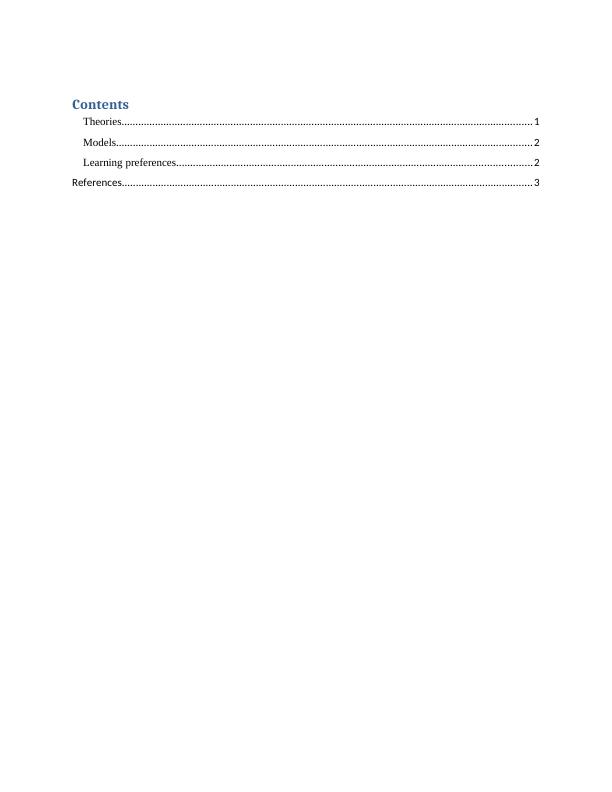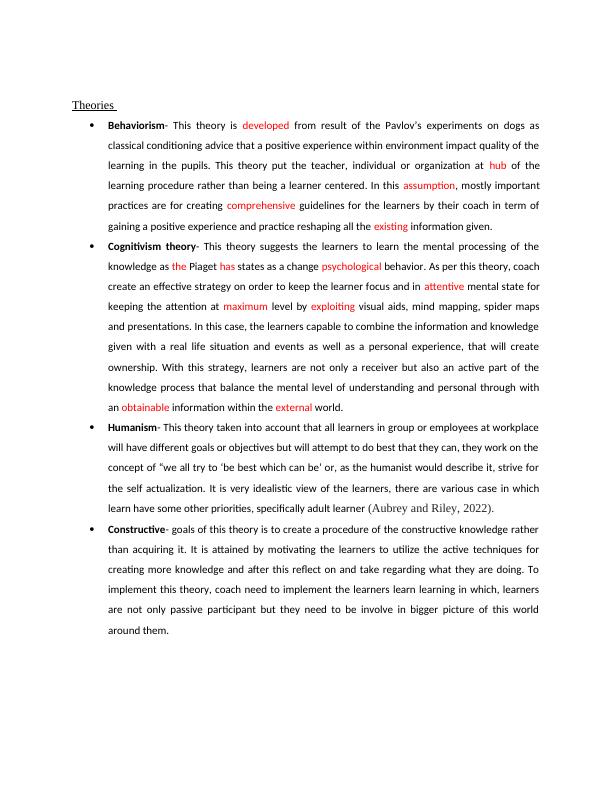Theories, principles and models for inspirational teaching and learning
5 Pages928 Words437 Views
Added on 2023-06-09
About This Document
This article discusses various theories, principles and models for inspirational teaching and learning. It covers behaviorism, cognitivism, humanism, constructive, and more. It also explores learning preferences and models like Kolb and Honey and Mumford. The article is relevant for educators, trainers, and anyone interested in improving their teaching and learning skills.
Theories, principles and models for inspirational teaching and learning
Added on 2023-06-09
ShareRelated Documents
End of preview
Want to access all the pages? Upload your documents or become a member.
MGT5DPP Developing People And High Performance Organizations
|9
|2208
|139
Theories, Principles and Models in Education and Training
|22
|7163
|160
Theories, Principles and Models for Inspirational Teaching and Learning
|9
|2250
|384
Learning Style : Honey and Mumford Theory
|8
|2097
|78
Theories, Principles and Models of Learning in Education and Training
|19
|8613
|79
Theories, Principles, and Models in Education
|9
|1534
|95


